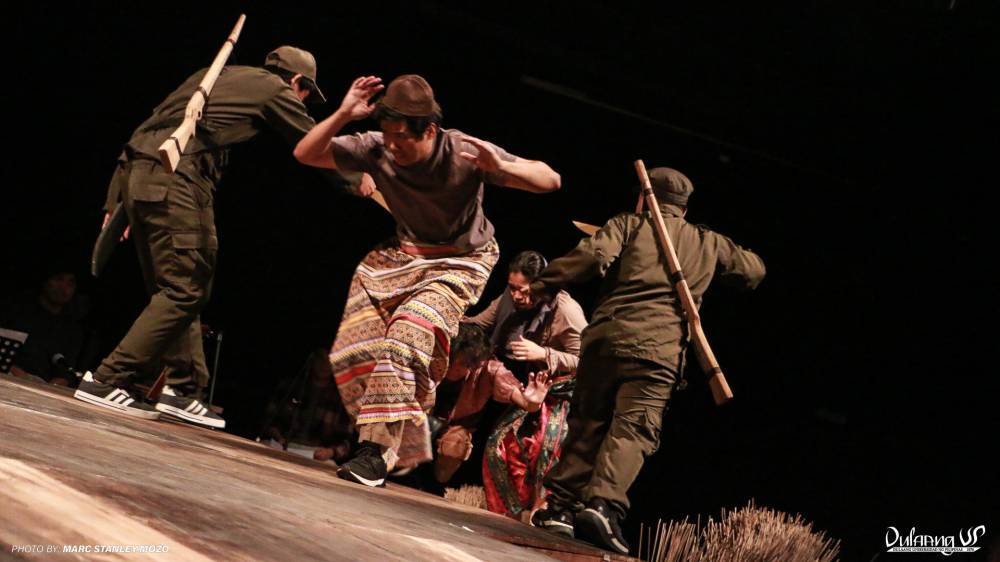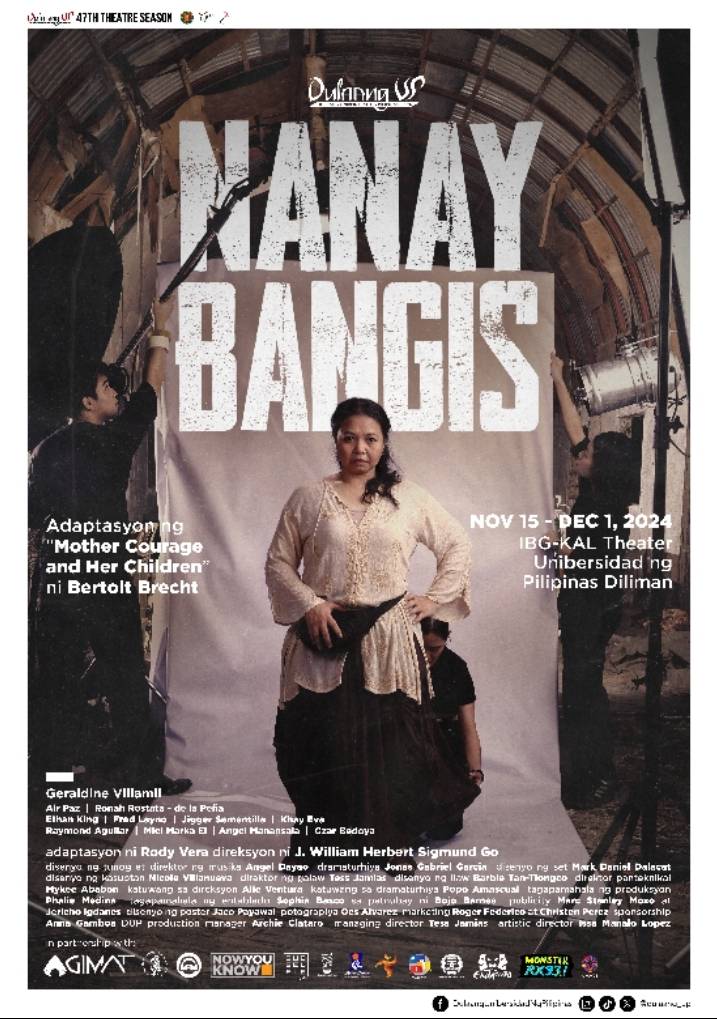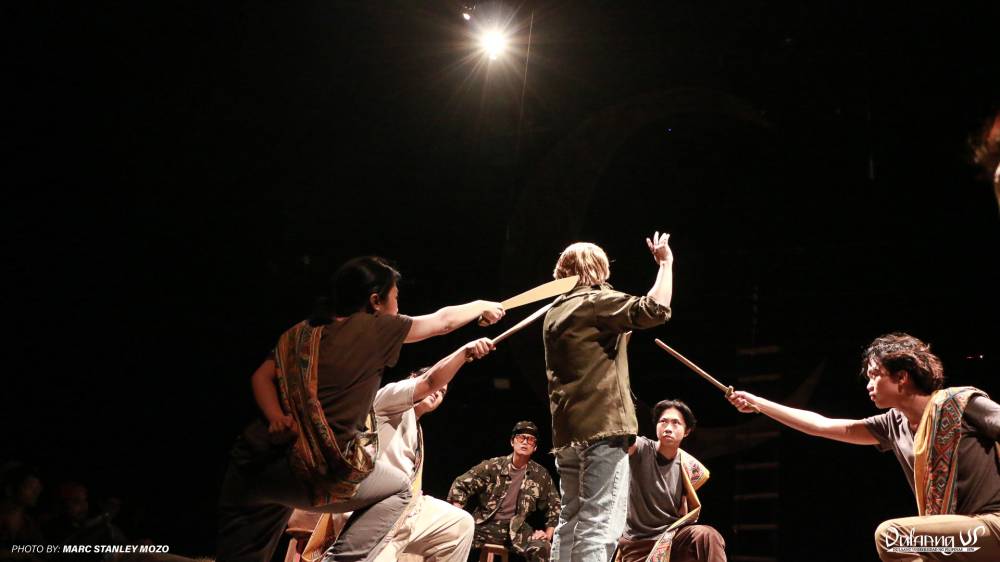Brecht’s ‘Mother Courage’ transplanted to Mindanao

“Mother Courage and Her Children” is one of the most famous works by Bertolt Brecht, and critics have called it a great antiwar play. It was written in 1939, significantly the start of World War II, when Nazi Germany invaded Poland.
The play as written by Brecht is set in Europe during the 17th century. There is a war going on and it is apparently between a Catholic and a Protestant country, for the fighting is between Catholic and Protestant soldiers.
As the play begins, we hear the sergeant-recruiting officer complaining about the difficulty of recruiting soldiers. Enter Mother Courage, with her famous cart containing provisions for sale to soldiers, and she introduces her three children–Eiliff, Kattrin, and the oddly named Swiss Cheese.
Eiliff is conscripted, kills peasants, and slaughters their cattle, and is congratulated by the Protestant general. The Catholics themselves have their own shame of human rights violations. They tortured and killed their paymaster, who happened to be one of Mother Courage’s sons. She does not acknowledge his body, fearing she will be accused as an accomplice.

Mother warns Kattrin not to get involved with soldiers. Desperate to protect her business, she refuses to give fabric to treat wounded soldiers, so the chaplain confiscates her supplies. In the original version, the war lasts for more than 17 years, with Mother Courage vowing to continue business.
Later credits to the play state that it had “significant contributions from Margarete Steffin,” a German writer and actress who was Brecht’s mistress. In fact, online biographers attribute “Mother Courage and Her Children” to her, “uncredited.”
We leave the issue to historians and scholars.

War in the South
The Dulaang Unibersidad ng Pilipinas (Dulaang UP) version of the Brecht-Steffin play, which ran in November until Dec. 1, is titled “Nanay Bangis” and is set in Mindanao during the 1970s, with the country under martial law and war raging between the Moro National Liberation Front (MNLF) and the military. The adaptation is by Rody Vera. Herbie Go directed with verve.
Geraldine Villamil was the titular Nanay Bangis, with Khay Eva as Christine, Ethan King as Elvis, and Raymond Aguilar as the former Swiss Cheese now called Kesong Puti (!). Among the soldiers, Fred Layno stood out as the Sundalo.

The play starts with a graceful Muslim dancer, giving the impression that this is a dance drama. But soon a soldier in camouflage uniform shoots her dead with a wooden toy gun and an artificial ack-ack sound. So from the beginning the audience is reminded that this is a Brecht play. It’s only a play, folks. When the story threatens to become intense or emotional, the actors pause and indicate to the audience to rein in their emotion; they give a spiel or announce something, putting a stop to the events unfolding.
The actors weave in and out of the stage, with its rectangular planks, sometimes going under and emerging near those in the front rows. They make their entrances and exits helpfully assisted by security guards who, in full view, part the curtain for them. An indigenous percussion band heightens the tension.

Riveting climax
Nanay Bangis (Villamil) is a businesswoman, trading with the military. She wants to benefit from the war. At one point she wails “Paano ba ako makikinabang sa gyerang ito?” Then it is announced that the war is over, but this is misinformation; the war resumes.
Mini-parachutes descend upon the audience, to indicate perhaps that soldiers have landed. There are a lot of these, and some in the audience picked these up and tossed them on the stage, in a kind of audience participation.
The military intends to attack the town. In the riveting climax, Christine (Eva), to warn the people—secured from behind by a stagehand—ascends the steep ladder leading to the ramparts and beats the drum continuously, exasperating the soldiers until they take appropriate action.
At the end, Nanay Bangis, unvanquished, vows to continue with her trading. The military is neither friend nor foe to her; they are merely clients. She is a businesswoman.

















